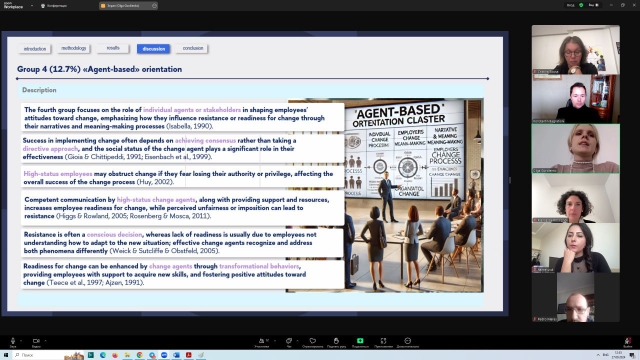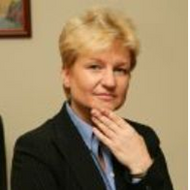- A
- A
- A
- ABC
- ABC
- ABC
- А
- А
- А
- А
- А
- HSE University
- Educational Departments
- HSE Graduate School of Business
- Department of Organisational Behaviour and Human Resource Management
- News
- Konstantin Bagrationi and Olga Gordienko Participated in the European Conference on Innovation and Entrepreneurship ECIE 2024 in Paris
 Management practices of Russian companies. Vol. 1
Management practices of Russian companies. Vol. 1
Stepanov A. K., Лихачев А. А., Silchev V. et al.
M.: Higher School of Economics Publishing House, 2022.
In press
Tatiana Aleksandrova, Anand A., Pelsőci B. L. et al.
Review of International Business and Strategy. 2025. Vol. 35. No. 2/3. P. 260-303.
Zinchenko M., Bagrationi K., Gordienko O. A.
In bk.: Proceedings of the 23rd European Conference on e-Learning - ECEL 2024. Academic Conferences International Limited, 2024. Ch. 55. P. 451-457.
 Cracking CROC's talent: teaching note
Cracking CROC's talent: teaching note
Mondrus O., Osipova A.
Case collection: HSE Graduate School of Business. 521-0108-8. The Case Centre, 2021

Konstantin Bagrationi and Olga Gordienko Participated in the European Conference on Innovation and Entrepreneurship ECIE 2024 in Paris

The scientists shared the results of a study on the systematic of approaches to overcoming resistance to changes and formation of readiness for them in terms of their differences. Four main areas of research have been identified:
1. Individual psychological direction.
2. Group direction.
3. Institutional and strategic direction.
4. Agency direction.
Practical justification: resistance to changes and unwillingness to changes have different prerequisites and require different approaches from the leader. Overcoming resistance to changes is reactive and requires the leader’s active participation in the process, for example, transformational behavior, employee support and conflict resolution. This distinguishes it from proactive creation of readiness for changes, which can be focused primarily on informing employees.
Unwillingness can be overcome through training and support, while resistance is more difficult to overcome, as it requires change of opinion and attitude to innovation, as well as providing with specific guarantees and support from management.
Participation of our researchers in such a significant international event reflects the high level of scientific work in the department, as well as strengthening its position in the global academic arena.
Konstantin Bagrationi
Associate Professor
Olga Tunkevichus
Lecturer
- About
- About
- Key Figures & Facts
- Sustainability at HSE University
- Faculties & Departments
- International Partnerships
- Faculty & Staff
- HSE Buildings
- HSE University for Persons with Disabilities
- Public Enquiries
- Studies
- Admissions
- Programme Catalogue
- Undergraduate
- Graduate
- Exchange Programmes
- Summer Schools
- Semester in Moscow
- Business Internship
- © HSE University 1993–2025 Contacts Copyright Privacy Policy Site Map
- Edit
